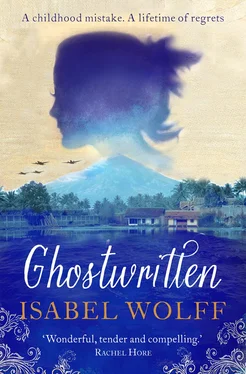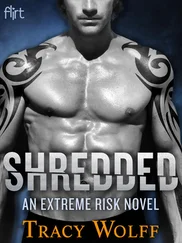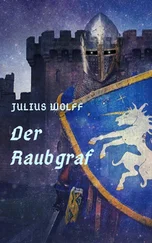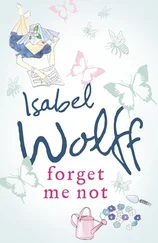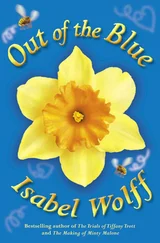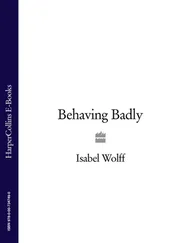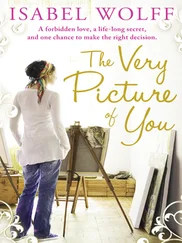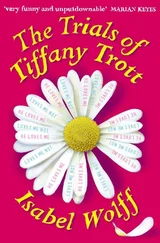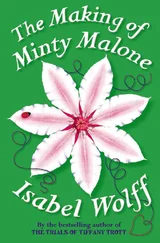By now her children have reached the rocks – jagged grey boulders thinly striped with white quartz. They clamber up, and Ted peers into the first pool. He stares at the seaweed, some brown and knobbly, some as green and smooth as lettuce. He pokes his net at a sea anemone and, to his delight, it retracts its maroon tendrils. Then he spies a shrimp and thrusts the net at it. ‘Caught something!’ he shouts, but as he inspects the mesh his face falls – all that’s in it is a brown winkle. ‘Evie!’ he calls, dismayed to see that she is fifty or sixty feet away. ‘Wait for me!’ But Evie keeps on jumping across the rocks, the bucket swinging from her arm.
As Ted follows her he looks out to sea and spots a yellow canoe with two people in it, lifting and twisting their paddles. He hears a distant roar, and sees a motorboat rip across the water, the wake fanning out in widening chevrons that make the canoe rock and sway. Then he returns his gaze to Evie. She’s peering into a pool. ‘Evie!’ he yells, but she doesn’t respond.
Ted steps onto the next boulder but it’s crusted with tiny black mussels that cut into his feet. The rock beside it looks smooth, but when he stands on it, it wobbles violently, and his thin arms flail as he tries not to fall. Sudden tears sting his eyes. The rocks are sharp, and his trunks won’t stay up and his sister won’t wait for him, let alone hold his hand like she’s supposed to. ‘Evie …’ His throat aches as he tries not to cry. ‘Eeevieeee!’
At last she turns. Seeing his distress, she makes her way back to him. ‘What’s the matter, Ted?’ She stares at his feet. ‘Why didn’t you wear your beach shoes?’
He sniffs. ‘I forgot.’
Evie heaves an exasperated sigh then turns towards the sea. ‘Then we’d better go this way – the rocks are easier. Mind the barnacles,’ she adds over her shoulder. ‘Ooh there’s a good pool.’ It’s long and narrow, like a little loch, with bands of leathery-looking weed that sway to and fro. As Evie’s shadow falls onto the surface, a small brown fish darts across the bottom. ‘Give me the net!’ Ted passes it to her and takes the bucket as Evie crouches down, thrusts the net under a rock and swiftly withdraws it. There’s a glint of silver. ‘Got it!’ she yells. ‘Fill the bucket, Ted! Quick!’
Ted dips the bucket in the pool then hands it to her. Evie tips the fish in and it swims to the bottom then scoots under a shred of bladderwrack. ‘It’s huge ,’ Evie breathes. ‘And there’s a shrimp!’ She feels a sudden euphoria – her loathing of her mother’s ‘friend’ forgotten. ‘Let’s get some more.’ As she dips the net in the water again she hears, faintly, the bell that the woman in the tea hut rings when she’s closing.
A few yards away the waves are breaking over the rocks; the two children can feel the spray on the backs of their legs.
Ted shivers. ‘Is it high time yet, Evie?’
Evie remembers Clive’s hands on their mother’s flanks. She thinks of his hairy chest and his thick arms, with their tattoos, and of the grunts that she hears through the bedroom wall.
‘It isn’t high tide,’ she answers. ‘Not yet …’
Ted picks up the net again. ‘The bell’s ringing.’
Evie shrugs. ‘I can’t hear it.’
‘I can, and ’member what Mum said, she said—’
‘Let’s find a crab!’ Evie yells. ‘Come on!’
Thrilled by the idea, Ted follows his sister, relieved that she’s going more slowly now, even if it’s only to avoid spilling their precious catch. Here the rocks are not sharp with mussels, but treacherous with seaweed, which slips like satin beneath Ted’s feet. He longs for Evie to hold his hand, but doesn’t like to ask in case it makes him seem babyish.
‘We should have brought some ham,’ he hears her say. ‘Crabs like ham. We’ll bring some tomorrow, okay?’
Ted nods happily.
On the beach, the man flying the kite is reeling it in. The mother of the girls in the pink swimsuits is calling them out of the sea. They run towards her, teeth chattering, and she wraps a towel around each one while the encroaching waves lick at their footprints. The family that were playing French cricket are packing up: the father hurls the ball and the dog tears after it.
People are folding their chairs, or collapsing sunshades and packing up baskets and bags as the sea advances, then retreats, then pushes forward again.
‘Five more minutes, Clive,’ Barbara says.
He winds a lock of her hair around his finger. ‘So what’s happening tonight?’
‘Well, I thought we’d walk to Trennick and get some fish and chips; we could buy a nice bottle of wine, and then … I’ll get the kids into bed early.’
‘You do that,’ Clive whispers. He kisses her. ‘You do that, Babs.’ Barbara smiles to think that she’s only known Clive for eight weeks. She remembers the rush of desire when she saw him – the first time she’d felt anything for a man in years. She thinks of how she’d loathed the job – sitting at her desk all day with nothing to see through the window but lorries and trucks with JJ Haulage on them; the only thing on her wall a road map of the UK. Just as she was wondering how much more of it she could stand, Clive had walked in. Tall and dark, with the shoulders of an ox, he’d reminded Barbara of a drawing of the Minotaur in one of Evie’s books. He’d come about his payslip – five overnights to Harwich that were missing. Flustered, Barbara had promised to correct it; then he’d suggested, cheekily, that she could ‘make it up to him’. She’d laughed and said maybe she would …
She’d told him that she had two kids – though no ex, God rest Finn’s soul; but Clive said that she could have had ten kids in tow and it wouldn’t have mattered. The fact that – at thirty-eight – he’s ten years older than she is makes Barbara feel light-headed.
The tricky thing had been introducing him to Evie and Ted. Ted had taken little notice of him, turning back to his Lego, but Evie had been hostile, and when Barbara told them that Clive would be coming on the holiday, she’d run to her room, slamming the door. But, as Barbara had said to her, Evie had friends – why shouldn’t Mummy have a friend? Why shouldn’t Mummy have a bit of happiness? Didn’t Mummy deserve it after all she’d been through? But Evie had simply stared at her, as though trying to drill a hole in her soul. Well she’ll just have to get used to him, Barbara decides, as Clive kisses her fingertips …
Suddenly Barbara realises that the bell has stopped ringing. She sits up.
On the rocks, Ted is getting tired. But now Evie has found another pool, a few feet from the water’s edge.
‘There’ll be crabs in here,’ she says authoritatively. ‘Okay, Ted, you hold the bucket. Be careful,’ she warns as she passes it to him. She takes the net. ‘What’s the matter?’
‘I want to hold the net.’
‘You’re too young.’ Confident that this has settled the matter, she returns her gaze to the pool.
Ted thumps the bucket down on a ledge. ‘I’m five!’
‘Well I’m nine, so it’s better if I do it. It’s not easy catching crabs.’
‘It’s my turn. You caught the fish – and the shrimp. So it’s my turn with the net now and—’
‘Shhhh!’ Evie is holding up her left hand, her eyes fixed on the water. ‘I saw one,’ she hisses. ‘A big one.’
‘Let me get it.’
Evie leans forward, very slowly, then jabs the net at a clump of weed. As she lifts it out, a khaki-coloured crab, the size of her hand, is dangling from the mesh with one claw.
Ted lunges for the net. To his amazement he manages to wrest it from her; as he does so, the crab falls back into the water then pedals under a rock.
Читать дальше
